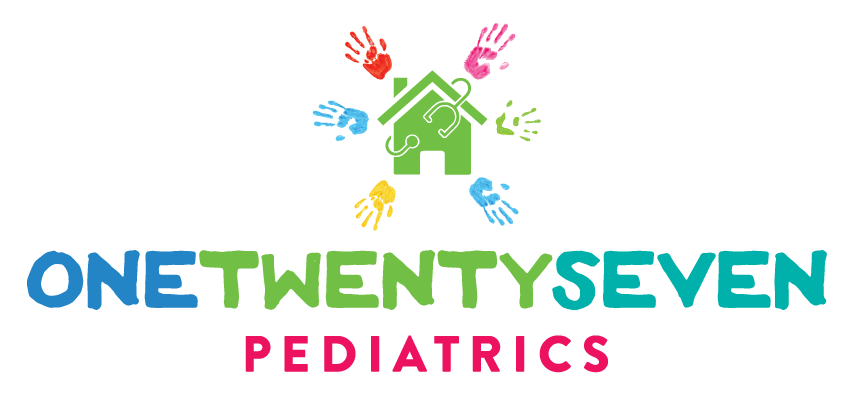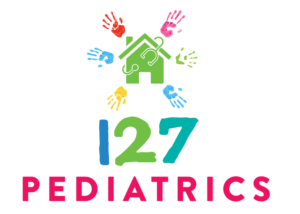In these times where there seems to be opinions everywhere about everything, you may be staring down at your growing belly and asking yourself, “is breastfeeding right for me?”
There are many loud voices on the internet. Maybe even your own family members will offer you an opinion, whether you want it or not.
As a pediatrician and breastfeeding medicine expert who sees all kinds of moms and babies , I’m here to tell you that breastfeeding is not for everyone.
But is it right for you?
Why breastfeeding might be right for you
Breastfeeding has enormous amounts of health benefits for both mothers and their babies.
Mothers experience less postpartum bleeding, faster healing, decreased chances of postpartum depression and increased bonding with their new babies. These benefits can be especially important for women with certain medical problems. There is also some evidence that breastfeeding can decrease a woman’s lifetime risk of breast cancer.
Babies experience better immune protection, advanced gut development and protection, fewer infections, decreased risks of certain kinds of cancers and many more less measurable benefits. Breastfeeding has also been shown to protect against SIDS, GI infections and ear infections. Babies who breastfeed learn to regulate their intake better and have a lower risk of obesity later in life.
Biology
Breastfeeding is the biological norm. It is the gold standard for infant nutrition around the world. Our bodies are designed in such a way that anyone who is pregnant and gives birth to a baby will produce breast milk after delivery.
It’s automatic in the beginning.
As time goes on, the more your baby eats, the more milk you produce and the more benefits your baby will experience.
Availability
In the early days after delivery and even as your baby ages, breast milk is almost always available. You don’t need to stop, mix a bottle, warm it and then feed your baby. Your breasts go with you everywhere that you go. Women who direct breastfeed, don’t need any special equipment or supplies to feed their babies when they are hungry.
Breast milk is alive!
Breast milk is alive with immune cells and adapts to your baby’s needs. If your baby is sick, your milk adapts. It makes specialized immune cells to fight off whatever illness your baby has. Your milk also changes in composition as your baby grows to meet the demands of his changing nutritional requirements.
If your baby is in the NICU, your milk adjusts for that too. Mothers of preterm babies make milk that is specific to meet their needs. Breast milk also has been shown to protect preemies from gut infections such as necrotizing entercolitis. This protection is so important, that if the baby’s mother does not provide breast milk, babies in this situation will often receive donor breast milk.
As good as baby formula has become, it simply cannot ever meet this standard.
Breastfeeding (can be) less expensive
While breastfeeding is not completely free, it can save you money. Even when you account for all the things that you buy to help you with the process, it costs significantly less money than buying formula for 12 months. It is less expensive as your baby grows too, unless you do late night online shopping while your baby feeds. 🙂
Why breastfeeding might not be for you
There are times when breastfeeding might not be the best decision for you and your baby. While there are very few true contraindications to breastfeeding, there are several reasons why breastfeeding would not be best for every mom or baby.
Contraindications
In the United States, breastfeeding is discouraged for mothers who have HIV, HTLV type 1 or 2 or are undergoing chemotherapy. It is also dangerous to breastfeed a baby that has galactosemia. Breastfeeding a baby while you are using an illegal substance can also be dangerous for many reasons and is strongly discouraged.
Learning curve
Breastfeeding is really hard. You need to start learning about how to breastfeed before your baby arrives on the scene. By the time you have your baby, you may have missed out on time sensitive processes that will make breastfeeding easier. I often see mothers do everything that they can in order to prepare for delivery, but do very little to prepare for breastfeeding. This can cause you to experience problems.
Your body may not produce milk
While it is very rare for a woman to produce no milk at all, there are certain medical conditions that contribute to extremely low breast milk production. Lactation failure can occur in the setting of hypoplastic breasts or breasts that did not develop as expected for whatever reason. Often, women with these conditions need to supplement their babies in order to keep up with their growth. In these circumstances, some women may choose to feed inclusively (both formula and breast milk), and some may choose to switch entirely to formula.
You are not the birth parent
If you are not the one that is physically giving birth, breastfeeding is nearly (but not completely) impossible. Some women choose to pursue inducing lactation in order to breastfeed a baby that they did not give birth to. But often, this is a very difficult task that does not lead to a full milk supply even in the best scenarios. There are ways to get breast milk to a baby in this situation, but it does not usually come from the parent.
You just don’t want to do it
As a pediatrician, I have cared for several babies whose mothers just don’t want to breastfeed.
And it is ok.
Either, they had a really traumatizing experience trying to breastfeed a previous child, or they just don’t like the idea of feeding a baby with their own bodies. Additionally, another sad reality is that often women who have experienced abuse, especially sexual abuse, have a hard time summoning the desire to breastfeed.
Even if these scenarios don’t fit your story, it is still okay if you just choose to not breastfeed.
Allow me to help you
If you have not made up your mind about breastfeeding after reading this article, and would like more information to help you to make an informed decision, 127 Pediatrics offers online breastfeeding education. (Our free class is launching Sept 15, 2022).
The information is taught in a non-judgmental manner. We provide evidence based information so that you can learn the process and the science behind breastfeeding and make an informed decision for you and your child. So come join us!
© 127 Pediatrics; September 2022

Dr. Andrea Wadley is the owner, pediatrician, and breastfeeding medicine specialist for 127 Pediatrics. She has an established house-calls only pediatric practice in Colleyville, TX. She is also the owner and operator of the 127 Pediatrics Online Breastfeeding Medicine and Education Center.


